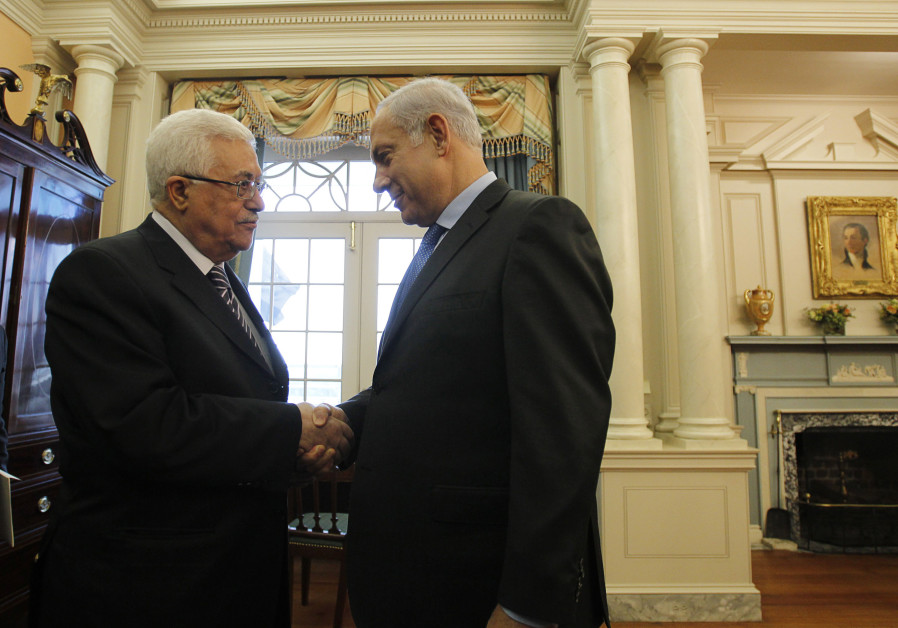Current diplomatic efforts to prevent war between Israel and Hamas, end the intra-Palestinian divide and forge a comprehensive regional peace appear doomed to failure.

The international community spearheaded by its professional peace processors are feverishly working to prevent another full-blown war between Israel and Hamas. As part of this effort, United Nations envoy Nickolay Mladenov has been conducting intensive shuttle diplomacy between Jerusalem, Gaza City and Cairo in a bid to forge a long-term ceasefire agreement.
According to media accounts, ideas being floated include the immediate cessation of hostilities, specifically the launching from the Gaza Strip into southern Israel of primitive incendiary objects and corresponding Israeli military strikes on Hamas assets; the complete re-opening of Israel’s Kerem Shalom border crossing, through which thousands of trucks of goods enter the Palestinian enclave; and expanding the fishing zone off Gaza’s coast.
This, within the broader context of major Gaza rehabilitation projects being dangled in front of Hamas.
Concurrently, a parallel, although intersecting, initiative is underway to end the decade-long divide between Palestinian Authority President Mahmoud Abbas’ ruling Fatah faction and Hamas. Among the issues purportedly being negotiated are removing Ramallah’s sanctions on Gaza; restoring PA administrative rule over the Strip; and disarming Hamas.
Essentially, these constitute the same terms of a failed intra-Palestinian reconciliation accord signed this past October in Cairo, and, beforehand, formed the basis of an original deal agreed to four years ago under the auspices of Qatar.
Meanwhile, it is business as usual in the Israeli political arena, with the Left promoting the unilateral removal of the blockade on Gaza without explaining why Hamas might subsequently be expected to reform itself; whereas, on the other end of the spectrum members of the Right are engaged in familiar one-upmanship, as Education Minister Naftali Bennet tries to outflank Prime Minister Benjamin Netanyahu, and Defense Minister Avigdor Liberman attempts to outdo them both.
This dynamic is comparable to that of 2014, when Bennett and Liberman pressured the premier to take a harder line on Hamas, effectively resulting in an Israeli ground incursion into Gaza during the 50-day conflict.
One year later, Hamas had essentially reconstructed its war machine.
All of this comes on the backdrop of the Trump administration’s ongoing work on an Israeli-Palestinian peace proposal, dubbed the “deal of the century.” While the plan reportedly contains some “out-of-the-box” suggestions to resolve longstanding “final status” issues, the fact of the matter is that almost nobody believes that either side is in a position to deliver.
Netanyahu is hamstrung by the make-up of his coalition and his own stringent demands on the status of Jerusalem, Palestinian refugees and future security arrangements that are anyways non-starters for the PA. For his part, Abbas is constrained by his regime’s indoctrination of the Palestinian public to oppose outright the notion of Jewish sovereignty.
In other words, then, it appears as though absolutely nothing new under the sun is being proposed along any of these three diplomatic tracks, thus begging the question: Has the process morphed into an end in itself, devoid of any realistic expectations of success?
In this respect, it seems increasingly unlikely that Mladenov and Co. will be able to prevent the next round of fighting in Gaza, which most maintain is inevitable for widely-cited reasons even though neither Israel nor Hamas wants any part of it. At the same time, it is unreasonable to assume that Abbas will suddenly accept responsibility for governing Gaza when Hamas still refuses to cede its weapons or allow PA security forces to deploy to the enclave.
Finally, in terms of forging a comprehensive Israeli-Palestinian peace, it can only be viewed as a pipe-dream considering the above-mentioned, less complicated issues—which, for that matter, are integral components of a potential wider deal—remain unsettled.
Notably, that the PA continues to boycott the US administration has conveniently been swept under the rug.
The present reality is a direct consequence of the mental stasis that has permeated Israeli-Palestinian peacemaking since the 2000 Camp David Summit blew up in the faces of then-US president Bill Clinton and former Israeli prime minister Ehud Barak—and then in Tel Aviv cafes and Jerusalem buses following Yassir Arafat’s launch of the Second Intifada.
Ever since, no tangible progress has been made towards achieving anything resembling lasting peace; this, because the same failed ideas have been recycled time after time, as evidenced by present goings-on.
The faith-like devotion to repeating the same thing over and over again stems from a misguided confidence that the sides in 2000 were close to completing a deal, a fabrication that was categorically disproven eight years later when Abbas rejected then-Israeli leader Ehud Olmert’s more generous offer.
Nevertheless, the near-sacrosanct mantra that “everyone knows what a solution to the conflict looks like” has become the de facto starting point for every fruitless negotiating process.
It should, by contrast, be clear that the basic assumptions that have driven the peace process backwards were never correct to begin with. Accordingly, there are two ways to proceed.
Either the current reality must be accepted and allowed to unfold, until such time that Israel, the PA or Hamas, or all three, takes decisive action to fundamentally alter the playing field. Or, a dramatically reconfigured diplomatic formula can be introduced into the mix, one in which existing variables are swapped out for new ones so that the Israeli-Palestinian equation may finally spit out a different result.
As reported by The Jerusalem Post
